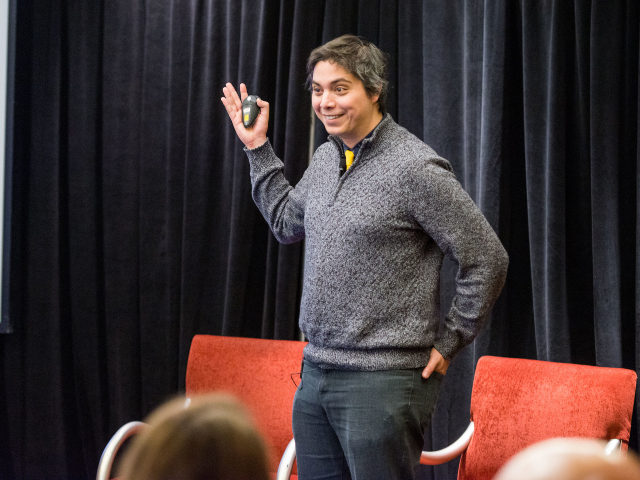A professor at Stanford University says that Dungeons & Dragons has racist undertones, claiming that it encourages a racist relationship between players.
Stanford professor Antero Garcia, who has been observing Dungeons & Dragons (D&D) while doing research at gaming cafés in the Midwest for his upcoming study of D&D players, told Wired that this fantasy role-playing game is racist in nature.
In the game exists a fictional humanoid race called “Tiefling,” which has infernal heritage and lives in ghettos in human cities. In the interview, Garcia recalled how one group of D&D players acted distrustful of a player-character whose race was Tiefling.
“They were all friends, but they knew the expectation was to be suspicious,” said Garcia. “That relationship is racism.”
The report added that fans of the game “can lean conservative.”
This is not the first time Garcia has lamented over Dungeons & Dragons. In 2017, the professor published an academic journal article, entitled, “Privilege, Power, and Dungeons & Dragons: How Systems Shape Racial and Gender Identities in Tabletop Role-Playing Games,” in which he argued that D&D perpetuates white privilege, and called the game a “white man’s hobby.”
The article’s abstract reads as follows:
This article takes a cultural-historical approach to analyzing how systems shape the assumptions, identities, and experiences of their users. Focusing on how the tabletop role-playing game Dungeons & Dragons is built on a system of play that has grown and shifted over the course of 40 years, this study emphasizes the central role that systems play in mediating the experiences of participants. By focusing on depictions of gender, race, and power in Dungeons & Dragons—as a singular cultural practice—this study highlights how researchers must attend to cultural production both around and within systems.
Garcia is a professor at Stanford’s Graduate School of Education, where he studies “how technology and gaming shape youth learning, literacy practices, and civic identities.”
One of his most recent studies explores “learning and literacies in tabletop roleplaying games like Dungeons & Dragons and how participatory culture shifts classroom relationships and instruction,” according to the university’s website.
You can follow Alana Mastrangelo on Facebook and Twitter at @ARmastrangelo, and on Instagram.

COMMENTS
Please let us know if you're having issues with commenting.